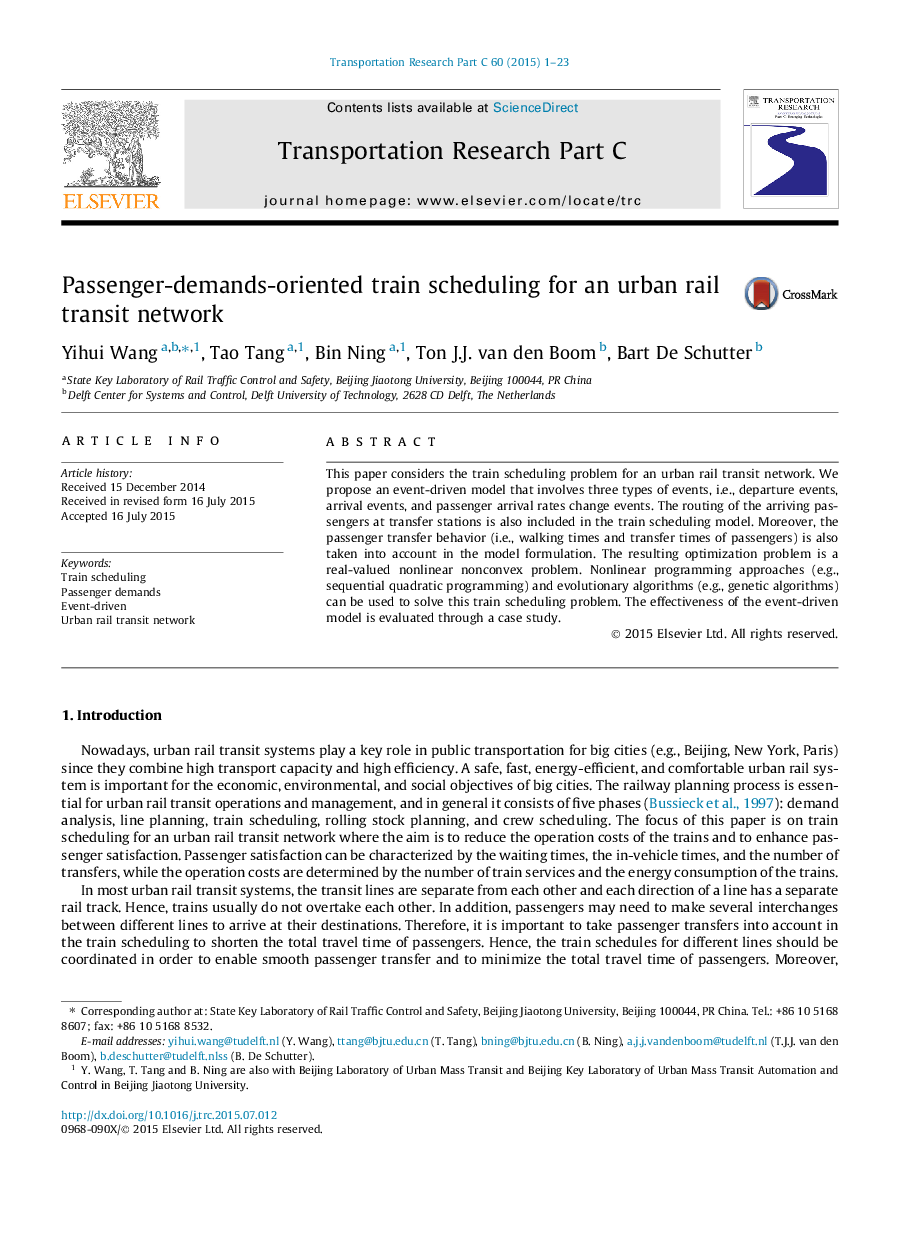| Article ID | Journal | Published Year | Pages | File Type |
|---|---|---|---|---|
| 6936531 | Transportation Research Part C: Emerging Technologies | 2015 | 23 Pages |
Abstract
This paper considers the train scheduling problem for an urban rail transit network. We propose an event-driven model that involves three types of events, i.e., departure events, arrival events, and passenger arrival rates change events. The routing of the arriving passengers at transfer stations is also included in the train scheduling model. Moreover, the passenger transfer behavior (i.e., walking times and transfer times of passengers) is also taken into account in the model formulation. The resulting optimization problem is a real-valued nonlinear nonconvex problem. Nonlinear programming approaches (e.g., sequential quadratic programming) and evolutionary algorithms (e.g., genetic algorithms) can be used to solve this train scheduling problem. The effectiveness of the event-driven model is evaluated through a case study.
Related Topics
Physical Sciences and Engineering
Computer Science
Computer Science Applications
Authors
Yihui Wang, Tao Tang, Bin Ning, Ton J.J. van den Boom, Bart De Schutter,
